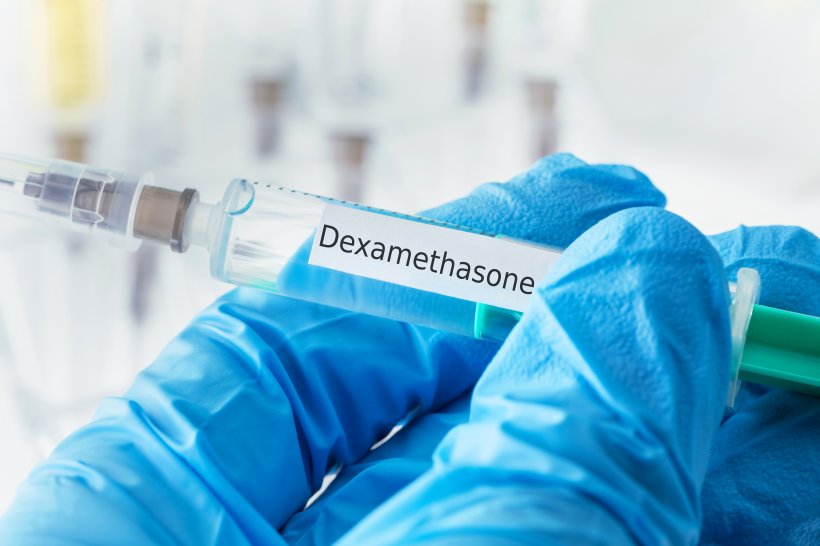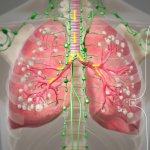
Source: Shutterstock / Tobias Arhelger
Article • COVID-19
Dexamethasone reduces risk of death
Researchers in the UK have shown that a widely available drug reduces death in hospitalised patients with severe respiratory complications of COVID-19.
The findings of a trial - run by the University of Oxford – indicated that the low-dose steroid treatment dexamethasone cut the risk of death by a third for patients on ventilators, and by a fifth for those on oxygen.
Report: Mark Nicholls
In March 2020, the RECOVERY (Randomised Evaluation of COVid-19 thERapY) trial was established as a randomised clinical trial to test a range of potential treatments for COVID-19, including low-dose dexamethasone (a steroid treatment). Over 11,500 patients have been enrolled from over 175 NHS hospitals in the UK.
On 8 June, recruitment to the dexamethasone arm was halted since, in the view of the trial Steering Committee, sufficient patients had been enrolled to establish whether or not the drug had a meaningful benefit.
A total of 2104 patients were randomised to receive dexamethasone 6 mg once per day (either by mouth or by intravenous injection) for ten days and were compared with 4321 patients randomised to usual care alone. Among the patients who received usual care alone, 28-day mortality was highest in those who required ventilation (41%), intermediate in those patients who required oxygen only (25%), and lowest among those who did not require any respiratory intervention (13%).
Dexamethasone reduced deaths by one-third in ventilated patients (rate ratio 0.65 [95% confidence interval 0.48 to 0.88]; p=0.0003) and by one fifth in other patients receiving oxygen only (0.80 [0.67 to 0.96]; p=0.0021). There was no benefit among those patients who did not require respiratory support (1.22 [0.86 to 1.75; p=0.14).
Based on these results, 1 death would be prevented by treatment of around 8 ventilated patients or around 25 patients requiring oxygen alone.
Given the public health importance of these results, the researchers are now working to publish the full details as soon as possible.
Instantly available and affordable worldwide
Dexamethasone is the first drug to be shown to improve survival in COVID-19.
Peter Horby
Peter Horby, Professor of Emerging Infectious Diseases in the Nuffield Department of Medicine, University of Oxford, and one of the Chief Investigators for the trial, said, "Dexamethasone is the first drug to be shown to improve survival in COVID-19. This is an extremely welcome result. The survival benefit is clear and large in those patients who are sick enough to require oxygen treatment, so dexamethasone should now become standard of care in these patients. Dexamethasone is inexpensive, on the shelf, and can be used immediately to save lives worldwide."
Martin Landray, Professor of Medicine and Epidemiology at the Nuffield Department of Population Health, University of Oxford, one of the Chief Investigators, commented, "Since the appearance of COVID-19 six months ago, the search has been on for treatments that can improve survival, particularly in the sickest patients. These preliminary results from the RECOVERY trial are very clear – dexamethasone reduces the risk of death among patients with severe respiratory complications. COVID-19 is a global disease – it is fantastic that the first treatment demonstrated to reduce mortality is one that is instantly available and affordable worldwide."
The World Health Organization (WHO) has welcomed the initial clinical trial results from the UK that show dexamethasone can be lifesaving for patients who are critically ill with COVID-19. "This is the first treatment to be shown to reduce mortality in patients with COVID-19 requiring oxygen or ventilator support,” added Dr Tedros Adhanom Ghebreyesus, WHO Director-General. “This is great news and I congratulate the Government of the UK, the University of Oxford, and the many hospitals and patients in the UK who have contributed to this lifesaving scientific breakthrough.’"
Recommended article

News • BTK inhibitor vs. respiratory distress
Off-label cancer drug shows promise against severe COVID-19
Early data from a clinical study suggest that blocking the Bruton tyrosine kinase (BTK) protein provided clinical benefit to a small group of patients with severe COVID-19. Researchers observed that the off-label use of the cancer drug acalabrutinib, a BTK inhibitor that is approved to treat several blood cancers, was associated with reduced respiratory distress and a reduction in the overactive…
The UK Government’s Chief Scientific Adviser, Sir Patrick Vallance, said: "This is tremendous news from the Recovery trial showing that dexamethasone is the first drug to reduce mortality from COVID-19. It is particularly exciting as this is an inexpensive widely available medicine. This is a ground-breaking development in our fight against the disease, and the speed at which researchers have progressed finding an effective treatment is truly remarkable. It shows the importance of doing high quality clinical trials and basing decisions on the results of those trials."
17.06.2020











